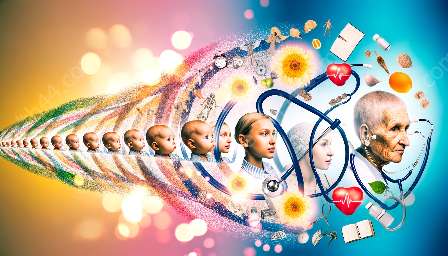Psychosocial development is a fundamental aspect of human growth and encompasses the intricate interplay between psychological and social experiences across the lifespan. This topic cluster explores the stages of psychosocial development, its impact on health, and its significance in health education and medical training.
TheoPsychosocial Development Throughout the Lifespan
Psychosocial development is a term coined by Erik Erikson, a renowned psychologist who proposed a theory of psychosocial development that encompasses eight stages, each characterized by a unique psychosocial crisis that individuals must resolve to advance to the next stage.
Infancy (0-1 year): Trust vs. Mistrust
During this stage, infants develop trust when their needs are consistently met, fostering a sense of security and optimism. Alternatively, mistrust may develop if their needs are not adequately addressed.
Early Childhood (2-3 years): Autonomy vs. Shame and Doubt
Toddlers explore their newfound independence, and fostering a sense of autonomy is crucial. If overly controlled or criticized, they may develop shame and doubt.
Preschool (4-6 years): Initiative vs. Guilt
Children seek to initiate activities and are eager to plan and undertake new activities. However, feelings of guilt may arise if their efforts are stifled.
School Age (7-11 years): Industry vs. Inferiority
Children begin to develop a sense of pride in their accomplishments. If they experience continuous feelings of failure, they may develop a sense of inferiority.
Adolescence (12-18 years): Identity vs. Role Confusion
Adolescents explore and develop a sense of self and personal identity. Lack of exploration may lead to role confusion.
Young Adulthood (19-40 years): Intimacy vs. Isolation
Young adults seek to form and maintain intimate relationships. Failure to do so may result in feelings of isolation.
Middle Adulthood (40-65 years): Generativity vs. Stagnation
Individuals focus on contributing to the next generation, through work, family, or other activities. If they do not feel productive, they may experience stagnation.
Late Adulthood (65+ years): Ego Integrity vs. Despair
At this stage, individuals review their lives and accomplishments. A sense of integrity and fulfillment may result, while despair may arise if they feel unfulfilled.
Impact on Health and Well-Being
Psychosocial development significantly influences an individual's health and well-being. Each stage of psychosocial development impacts emotional and social functioning and contributes to the development of coping strategies and resilience. For example, individuals who successfully navigate the trust vs. mistrust stage in infancy are likely to develop secure attachments, which can positively influence their mental and emotional health throughout their lives.
Conversely, unresolved psychosocial crises can lead to adverse health outcomes. For instance, individuals who struggle with identity formation during adolescence may be at a higher risk of experiencing mental health issues such as anxiety, depression, or substance abuse.
Furthermore, the relationships individuals form throughout their lifespan, influenced by their psychosocial development, play a pivotal role in their overall health. Positive, supportive relationships can serve as protective factors, while negative or toxic relationships can contribute to stress and negative health outcomes.
Relevance to Health Education and Medical Training
Understanding and recognizing the impact of psychosocial development is essential for health educators and medical practitioners. By comprehending the stages of psychosocial development, educators and practitioners can tailor their approaches to effectively address the psychosocial needs of individuals at different life stages.
Health educators can incorporate knowledge of psychosocial development into their programs to promote healthy behaviors and address psychosocial challenges that individuals may encounter. For instance, understanding that adolescents are navigating the identity vs. role confusion stage can guide educators in providing support and interventions aimed at promoting positive self-image and healthy identity formation.
Medical training can benefit from integrating psychosocial development into healthcare practices. Physicians and other healthcare providers can better understand their patients' needs and challenges by considering their psychosocial developmental stage. This understanding can enhance patient-provider communication and contribute to more holistic and effective healthcare delivery.
Overall, recognizing the relevance of psychosocial development in health education and medical training can lead to more comprehensive and impactful approaches to promoting health and well-being across the lifespan.


